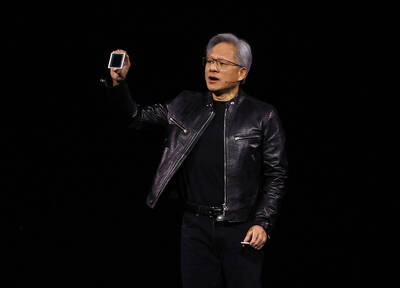《TAIPEI TIMES 焦點》Firms upbeat on Taiwan: AmCham
By Crystal Hsu / Staff reporter
US companies in Taiwan are slightly more confident about their financial prospects this year as the economy improves and the government heeds calls for regulatory reform, a survey by the American Chamber of Commerce in Taipei (AmCham) showed yesterday.
The poll showed that 56.1 percent of US companies with operations in Taiwan expect revenue and profits to increase this year, up from 54 percent last year, reflecting a modest improvement, AmCham chairman Albert Chang (章錦華) told a news conference to announce the annual survey’s results.
Last year, 67 percent of the respondents described their financial performance as “profitable.”
Chang attributed the changing sentiment mainly to Premier Lin Chuan (林全) extending the public comment period for new regulations from 14 days to 60 days, allowing firms more time to make adjustments.
“We will closely monitor if related agencies truthfully enforce the extension and respond to feedback,” Chang said.
Each year, governmental bureaucracy tops the list of concerns that US companies say have a significant impact on their business.
For the past three years, 80 percent of the respondents have been saying they see no change or even deterioration in this area, he said.
Outdated laws and their inconsistent implementation; differences between local and internationally accepted standards; and a lack of transparency hinder the ease of doing business in Taiwan, he said.
The current rules are not favorable for online banking, although the government has encouraged digitalization, he said.
Chang described the recent changes to the Labor Standards Act (勞動基準法), which mandate more overtime pay and days off, as “a big headache” and “a mess” because a lack of clarity has left companies confused.
Cross-strait relations deteriorated to their worst point last year, after falling off the companies’ radars during the previous administration, the trade group said.
“We do not seek to influence policy direction, but are calling for policy stability and predictability,” Chang said.
China has cooled economic and political ties with Taiwan after President Tsai Ing-wen (蔡英文) refused to recognize the existence of the so-called “1992 consensus.”
The survey found that 46.9 percent of US companies plan to increase their investment in Taiwan over the next 12 months and 49 percent are positive about their five-year business outlook.
Both figures represent a 2 percentage point increase, but Chang said the pace of recovery lags behind the levels in 2015, suggesting room for improvement.
In addition, 40.4 percent of the companies plan to hire more employees this year, compared with 47.4 percent that did so last year, according to the survey.
The so-called “1992 consensus” — a term former Mainland Affairs Council chairman Su Chi (蘇起) in 2006 admitted making up in 2000 — refers to a tacit understanding between the Chinese Nationalist Party (KMT) and the Chinese Communist Party that both sides of the Taiwan Strait acknowledge that there is “one China,” with each side having its own interpretation of what “China” means.
新聞來源:TAIPEI TIMES

















